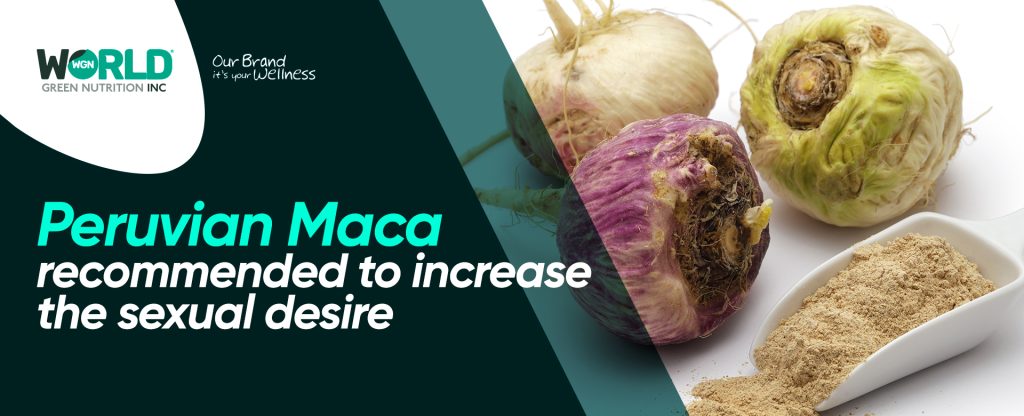

Home / Peruvian Maca: Recommended to increase the sexual desire
Peruvian Maca: recommended to increase the sexual desire
The testosterone is a hormone that increases the sexual desire in both sexes and promotes the erection in men. The decrease in the levels of the testosterone serum is associated with decrease in sex drive and the erectile dysfunction. The treatment with testosterone would be effective in these cases, but the fear of its adverse effects makes its use not so common, that is why other options for treatment is being sought.
The maca is a plant that grows over 4,000 meters of altitude in the central Andes of Peru, its life cycle has two well-defined stages, the first one called the vegetative where the reserve root is produced, which is used as food by the population. The other stage known as the reproductive, consists in the production of the botanical seed; both stages are completed in two consecutive years and, therefore, is known as a biennial crop.


Traditionally used as food for its excellent energizing and nutritious qualities, as well as for its beneficial properties on lack of desire and fertility, it has become a popular functional plant food due to its effects.
There is an increasing scientific evidence in the health industry of sexual medicine about Maca due to a great interest that has increased for its important actions and applications in gynecology and uroandrology.
Scientific studies have shown:
- That lipid extracts of maca, improve the sexual behavior.
- The positive effect of maca on sexual dysfunction in women and its suggestion in the treatment of the sexual desire disorder or the hypoactive sexual desire (HSD).
- Effective in the sexual dysfunction caused by antidepressant drugs selective inhibitors from the reuptake of serotonin (SIRS), producing an increase in libido and an improvement in sexual behavior.
WORLD GREEN NUTRITION SUGGESTED PRODUCT THAT HELPS IMPROVE SEXUAL DESIRE
BIBLIOGRAPHY
Dini, A., Migliuolo, G., Rastrelli, L., Saturnino, P., & Schettino, O. (1994). Chemical composition of Lepidium meyenii. Food Chemistry, 49(4), 347-349. https://doi.org/10.1016/0308-8146(94)90003-5
Gonzales, G. F., Villaorduña, L., Gasco, M., Rubio, J., & Gonzales, C. (2014). Maca (Lepidium meyenii WALP), a review of its biological properties. Peruvian Journal of Experimental Medicine and Public Health, 31(1).
https://doi.org/10.17843/rpmesp.2014.311.15
Obregon, L.E. (1999). Maca. Medicinal and nutritious plant of Peru. Natura Medicatrix: Medical Journal for the Study and Diffusion of Alternative Medicines, (55), 26-27. https://dialnet.unirioja.es/servlet/articulo?codigo=4989281

